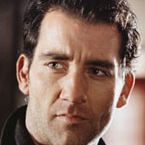Neilster
Posts: 2890
Joined: 10/27/2003
From: Hobart, Tasmania, Australia
Status: offline

|
Thanks for posting this. I've been trawling through wartime Australian newspapers and, in a similar vein to your post above, it's fascinating to see several things.
1. They have very little idea what's actually going on. Sometimes this is because of the inevitable fog of war and communications difficulties but sometimes it's because the Allied high command didn't know what was going on themselves (i.e. German crossing of the Meuse, France 1940).
2. In the first couple of years, they're ridiculously optimistic at the beginning of any campaign. The subsequent defeat is explained away in various ways such as, Belgian surrender in 1940 (highly unfair), the enemy's willingness to accept hideous losses (they didn't take them), overwhelming enemy superiority (i.e. 10,000 German tanks invading France, some weighing 70 tons...err no) or fifth columnists (no, except in Poland). There's is, however, a grudging admission of German skill but overall the tone is consistent with a propaganda line.
3. The shock of the blitzkrieg victories is on full display. As editorials have to be written each day, and without the benefit of hindsight, it's difficult for the writer to camouflage their feelings at the rapid reverses.
4. The Soviets are mental. Even when they start winning they are so paranoid that they lie about which generals are in charge of operations, for example.
So I'll be investigating The War Illustrated thoroughly.
_____________________________
Cheers, Neilster
|
 Printable Version
Printable Version












 New Messages
New Messages No New Messages
No New Messages Hot Topic w/ New Messages
Hot Topic w/ New Messages Hot Topic w/o New Messages
Hot Topic w/o New Messages Locked w/ New Messages
Locked w/ New Messages Locked w/o New Messages
Locked w/o New Messages Post New Thread
Post New Thread